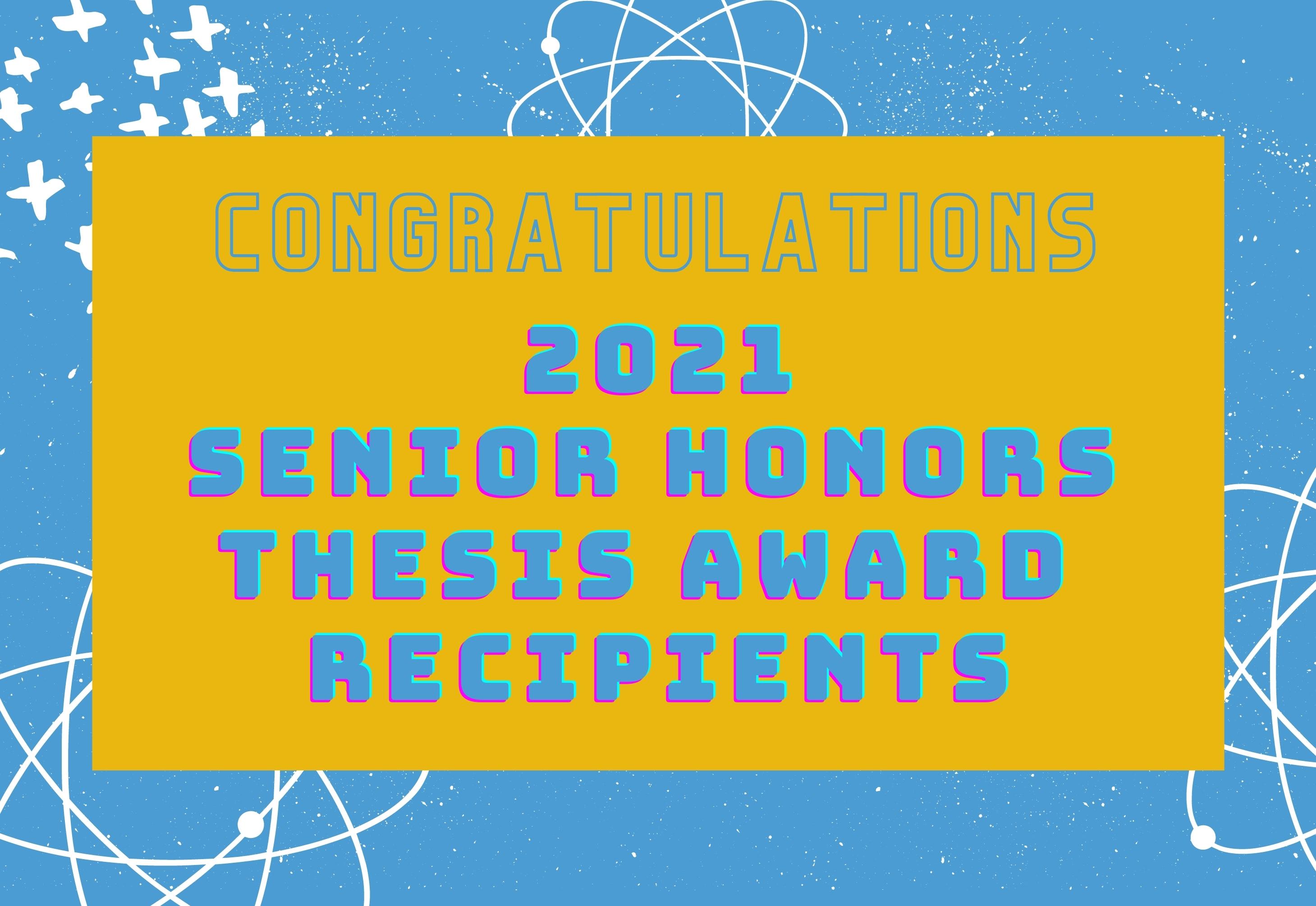Chemistry seniors Julie Lee, Zijian Li and Rinco Wang earn Honors Carolina research awards for Senior Honors Thesis

November 05, 2021 | By UNC-Chapel Hill Chemistry Communication
We are pleased to announce that Carolina Chemistry seniors Julie Lee, Zijian Li and Rinco Wang are recipients of research awards from Honors Carolina that will support their Senior Honors Thesis. The Senior Honors Thesis provides the opportunity for seniors to cap off their undergraduate experience by partnering with a faculty mentor to develop original research or creative work. Students who successfully defend their theses before a faculty review panel graduate with Honors or Highest Honors. Read on to learn more about Julie, Zijian and Rinco’s respective research projects.
 Julie Lee, faculty mentor: Clyde Hodge
Julie Lee, faculty mentor: Clyde Hodge
Recipient of the Salisbury Family Senior Thesis Research Award
Research project: “Observing Region-specific mRNA Quantification and Protein Phosphorylation Activity to Understand Mechanisms of Alcohol Dependence”
Project Summary
Alcohol dependence disrupts lives by inducing anxiety-like symptoms and other psychological discomfort. To alleviate such symptoms, people are compelled to drink more, further disrupting their neural homeostasis. The Hodge Lab studies mechanisms as to which this occurs, one of which upregulates excitatory neurotransmitter glutamate throughout the brain. In prolonged drinking, a major glutamate receptor AMPAR (α-amino-3- hydroxy-5-methyl-4-isoxazolepropionic acid receptor) was observed to increase in density and activity with the help of anchoring proteins called transmembrane AMPA receptor regulatory protein (TARP) that tether the receptor at the synapse. In particular, the TARP subunit most correlated to areas affected by alcohol use is TARP-𝛾8. Change in the TARP-𝛾8 is highly suspected to be involved with the AMPAR upregulation mechanism, as it prolongs the anchoring of AMPAR to the synapse when phosphorylated by a protein called CAMKII. In addition to TARP-𝛾8, the lab discovered through qRT-PCR that alcohol dependence alters expression of several other region-specific components associated with excitatory neurotransmission. However, given changes in gene expression do not guarantee activity, further experimentation is needed to measure protein concentration and phosphorylation activity. A compilation of these data will enhance understanding of how alcohol alters glutamergic neurotransmission in the brain and offer potential clinical solutions to combatting addiction.
- Zijian Li, faculty mentor: Sharon Campbell
- Recipient of the Honors Undergraduate Research Award
- Research project: “Characterization of a Novel Function of G i as an Intracellular pH Sensor”
- Rinco Wang, faculty mentor: Gary Pielak
- Recipient of the Kimball King Undergraduate Research Award
- Research project: “Structure and Phase Behavior of Tardigrade Cytosolic Abundant Heat Soluble Protein D (CAHS D) as a Function of Solution Conditions”

